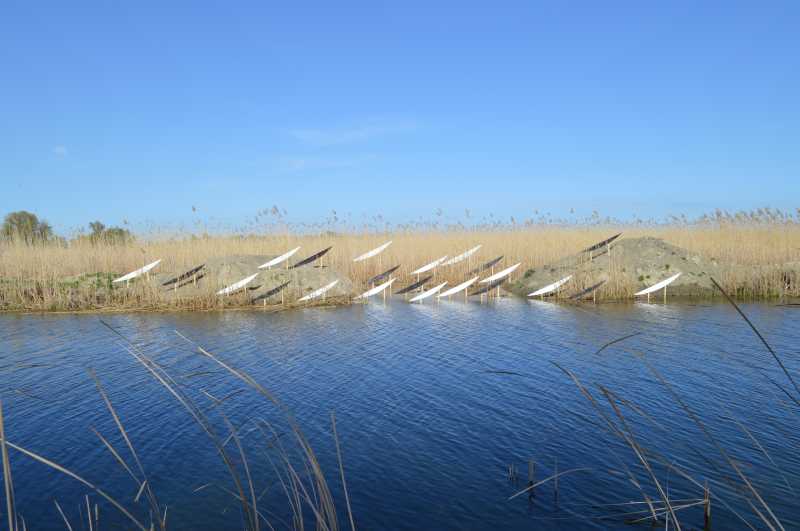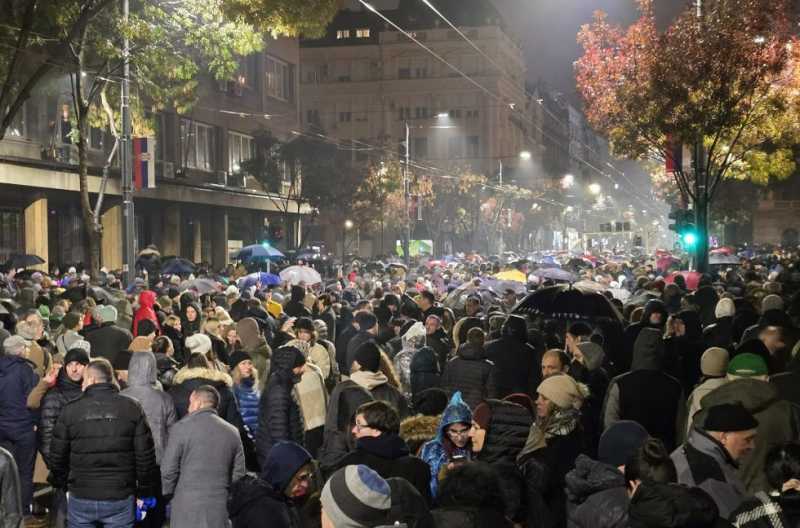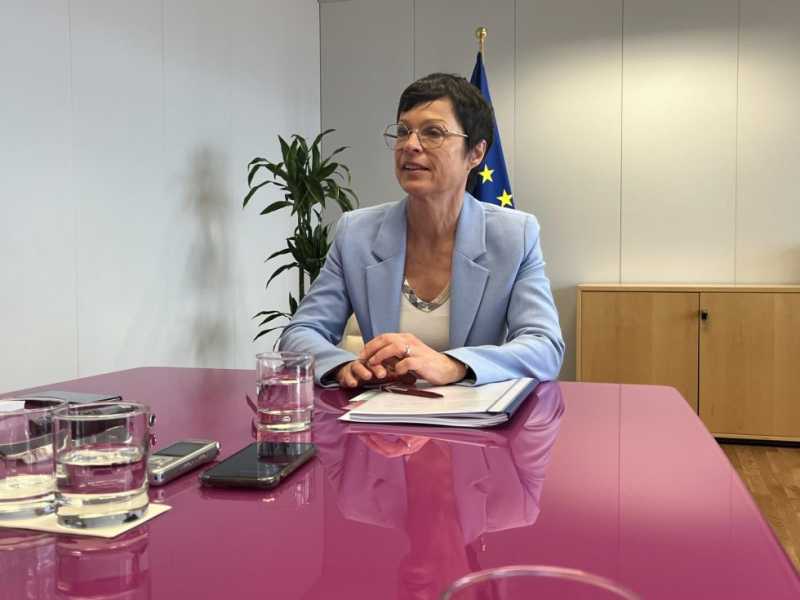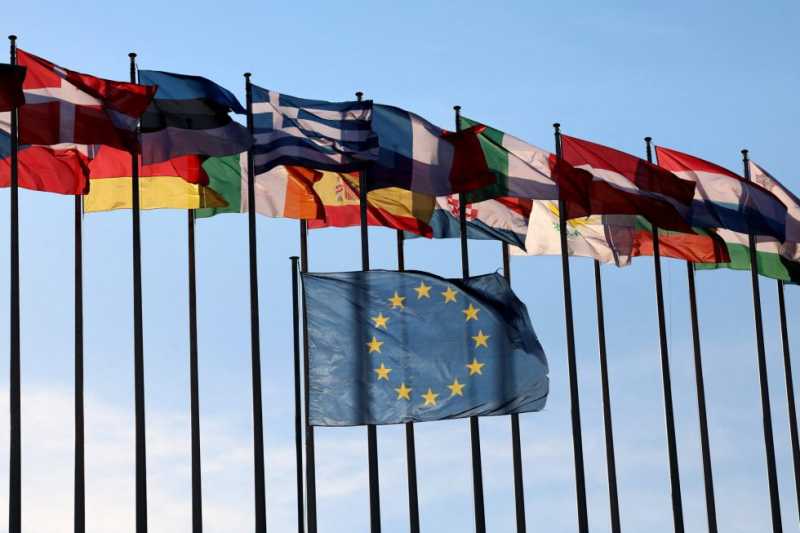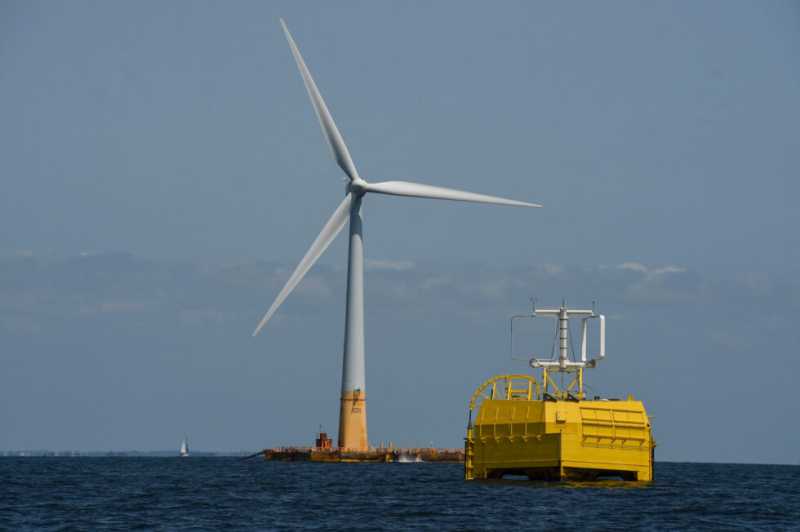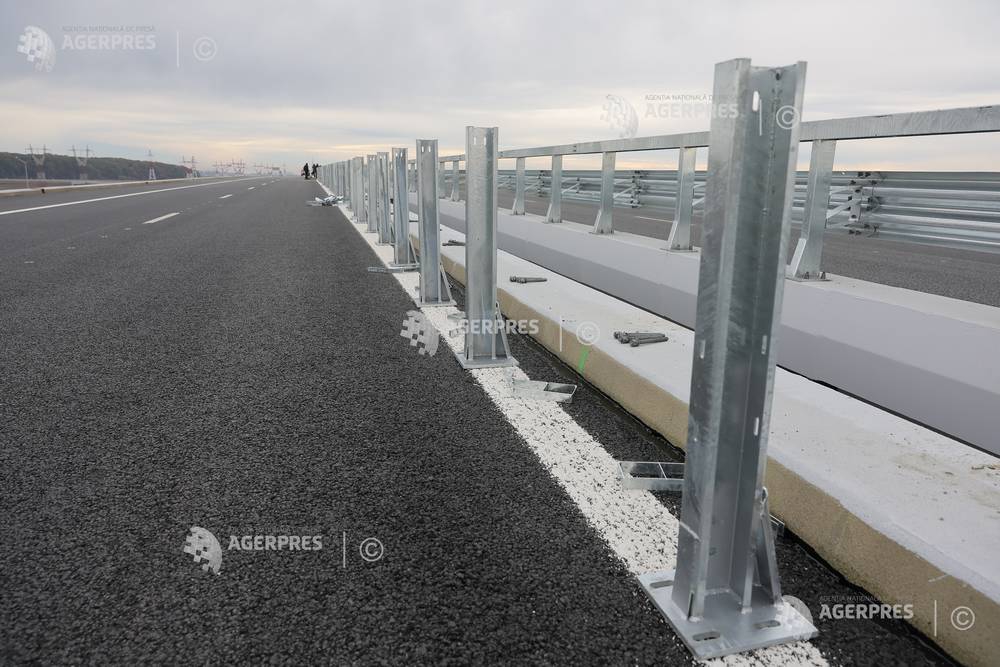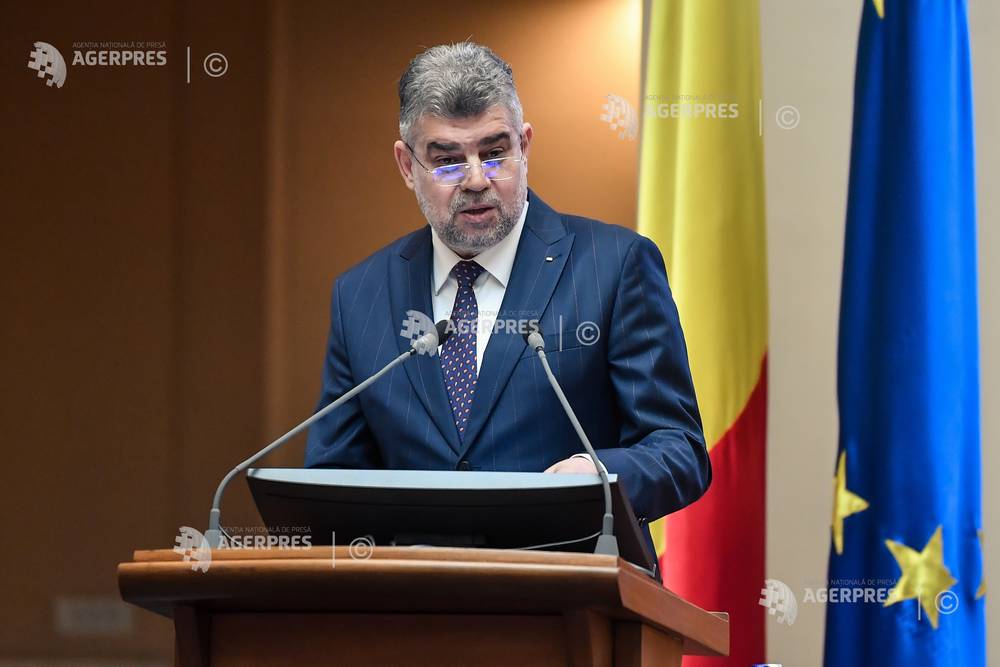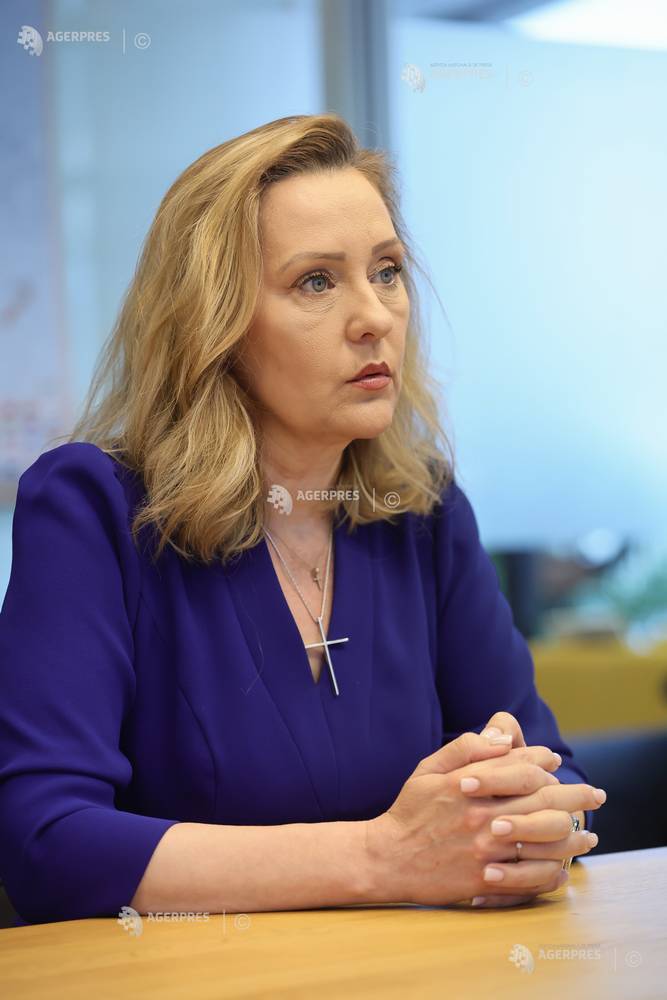Troubled waters: EU struggles with floods, scarcity and pollution (enr)

Brussels, Feb 7 /Agerpres/ - Water is everywhere, and most of the time, Europeans don't really ponder this essential part of their lives much. But climate change, agriculture, pollution and overuse are putting a strain on water systems on the continent - be it freshwater, oceans or even wastewater.
The EU has launched a raft of policies in an attempt to get a clearer picture on the state of water in the Union and to shape its upcoming Water Resilience Strategy.
This week the Commission released reports on the implementation of the Water Framework Directive, the Floods Directive, and the Marine Strategy Framework Directive.
In this article, the enr is looking into how countries in different parts of the EU are affected by the issues highlighted in the reports and - in a separate part of this - will also dive into the Urban Wastewater Directive, which entered into force in January.
In the Commission's report on the implementation of the Water Framework Directive it was said that things got better. 'Member States have generally improved knowledge and monitoring of surface and groundwater bodies, increased spending, and improved the application of EU water-related legislation, though there are considerable regional differences,' it was pointed out.
Across the board, a change in mindset was needed when it comes to accessing water, Commsissioner Roswall told the Bulgarian news agency BTA. 'Water is no longer business as usual. It is a strategic resource for our security.'
But member states still have their work cut out to meet the EU's targets, with only 39 percent of surface water bodies achieving good ecological status, and only 26.8 percent achieving good chemical status. This was mainly due to widespread contamination by mercury and other toxic pollutants, the Commission added. Floods, water scarcity and drought were also growing concerns.
No smooth waters
Member States are asked to adhere to pollution levels and ensure that wastewater is being dealt with properly by 2027. They are to promote water reuse, combat illegal extraction and increase efficiency, among other things. However, at this point it seems unlikely for the states to achieve these objectives by 2027, the report said.
Roswall stressed that EU water legislation was in place, but its implementation was lagging. To close that gap, she announced structured dialogues with every EU country.
Countries such as Belgium are nowhere near reaching the goals of the framework directive on water by 2027. There is widespread pollution from agriculture and industrial activities and dense population - canalisation and historic (that is long-term) and cross border pollution also add pressure.
In Belgium, only 27.4 percent of surface waters had a good ecological status with the presence of nitrates and pesticides remaining a major concern. Additionally, all surface waters were in poor chemical status, mainly due to mercury, synthetic chemicals like Per- and polyfluoroalkyl substances (PFAS) and metals such as lead and cadmium. The chemical status of groundwater improved slightly compared to the 2015 measurement, but still almost half of groundwaters are in a bad situation.
According to European sources, seven member states, among them Portugal, that have not submitted updated strategic plans on the application of the Water Framework Directive and the Floods Directive will be brought before the Court of Justice of the European Union.
Expect bickering and challenges: The Portuguese government for example has said that the data that led the European Commission to put Portugal in court for inadequate measures in relation to water and flooding is out of date, according to the Environment Ministry.
Scarcity, pollution and flooding
Droughts and water scarcity are putting the EU's water reserves to the test, while the risk of increased flooding is considered high. Despite the progress observed in the Commission's assessment of the implementation of the Floods Directive on flood risk management, Brussels recommends that capitals improve their planning and administrative capacity and invest adequately in flood prevention.
'Floods are becoming more frequent, more intense, and more deadly. No part of Europe is spared. Investing in flood prevention and early warning systems is key to achieve this,' Roswall said.
Yet most of member states' plans made drawing conclusions on their effectiveness difficult due to a lack of quantitative targets.
Austria for example was asked to make the objectives of the national plan more specific, to link them to quantitative indicators where possible and to set a time limit. It must also assess its progress in achieving the objectives. It should also increase and accelerate its measures to restore a good ecological and chemical status of all rivers and lakes, the report stated. 'Diffuse pollution from agriculture! in the waters must be better assessed and directly reduced, it added.
Belgium is one of the countries that needs to do more on flood management, Roswall emphasised. Flood risks are significant across the Belgian regions, as became painfully clear during the summer of 2021, when floods ravaged parts of the province of Liege. Over the past years, floods have also laid waste to parts of Germany, the Netherlands, the Czech Republic, Spain, Poland or Austria, to name some.
Southern European countries are also increasingly falling victim to extreme weather events such as floods and droughts, Italy being a case in point. The impact of drought is set to increase in the coming years, as the effects of climate change will be felt more and more, the Commission said.
Water scarcity in Italy was however also caused by human actions, as 77 percent of underground water bodies suffer from scarcity due to extraction pressures. Pollution from agriculture, on the other hand, exerted the most pressure on surface water bodies.
Biodiversity loss: Not too many fish in the sea
The Marine Strategy Framework Directive (MSFD) requires Member States to assess, monitor and take measures to protect and improve the state of their seas to achieve good environmental status.
The report noted some progress, but: On average across all Member States covered in this report, only measures for marine litter and non-indigenous species are considered to tackle to some extent the issues needed to remedy the problems.
Measures to tackle other forms of pollution, biodiversity loss and climate change are still considered insufficient. The commission urged more action on measures to protect and restore marine biodiversity, and to reduce nutrient, chemical and underwater noise pollution.
Waste not, want not
On January 1, the EU's revised Urban Wastewater Treatment Directive also entered into force. It aims to protect human health and the environment from the effects of untreated urban wastewater. To that end, it requires EU countries to ensure that towns and cities properly collect and treat wastewater cost-effectively.
EU countries will have to step up and innovate how they deal with wastewater, as the directive requires that urban areas for more than 1,000 inhabitants collect and treat it. Treatment steps should remove nutrients or micropollutants which can be harmful. At the same time the treatment plans must become energy-neutral and greenhouse gas emissions have to be reduced by 2045. Additionally, it requires wastewater to be monitored for contagions such as SARS-Covid or anti-microbial resistance.
By implementing these requirements, the Commission wants to achieve a range of ambitious goals: it aims to improve water quality through stricter water treatment, as well as aid the reuse and recovery of wastewater. The Directive wants to ensure that the responsible polluters pay up and that the most vulnerable and marginalised people in Europe have access to sanitation.
Member states have until 2028 to report on the implementation of the old directive, after that the reporting system will switch to the revised Directive. Doing that could cost billions, as some EU members are struggling to comply even with the old directive.
Back in late 2023, the European Commission for example referred Spain to the Court of Justice of the EU (CJEU) for its 'complete failure' to comply with EU regulations on the collection and treatment of urban wastewater. 'The information collected by the Commission shows widespread non-compliance with the Directive in Spain,' according to a statement by the European Commission back then.
Bulgaria's Minister of Regional Development and Public Works Ivan Ivanov said European funds were 'the primary - if not the only - source of funding for the rehabilitation of the water supply and sewerage network' in his country. Required investments to comply with EU directives for urban wastewater treatment alone amount to about 3 billion Euro, and many billions more for improving drinking water quality and upgrading the existing water infrastructure.
In Italy, pollution from poor management of urban wastewater remains a significant issue, affecting a quarter of surface water bodies. According to the Commission, the country is behind the European average in implementing the directive on urban wastewater treatment, with only 56 percent of urban wastewater treated according to the requirements of EU standards compared to the European average of 76 percent.
More than two thirds of Slovenia's wastewater was treated before release in 2023, according figures from the country's Statistical Office data for that year.
The government welcomed the new EU measures, but said that some portions of the directive were very ambitious, and called for flexibility to adapt it to the specificities of EU countries. Slovenia supported measures based on the 'polluter pays' principle, but had concerns about the detailed regulation of penalties at EU level.
Eliminating micro-pollutants and implementing the polluter pays concept is a big aspect of the new directive. These are undesirable substances detectable in the environment at very low concentrations (micrograms, or even nanograms per litre), generally due to human activity. The new directive establishes a polluter-pays principle for the pharmaceutical and cosmetic industries.
Producers of medicines and cosmetic products are willing to participate in the effort, but consider it unfair to be the only manufacturers to do so and warn about the high costs. 'We do indeed have micro-pollutants from our products in urban wastewater, so we must indeed participate in their elimination,' Pascal Le Guyader, deputy general director of the French pharmaceutical companies' union (Leem), told AFP.
An impact study of the European Commission estimates additional costs of 1.2 billion Euro per year for the whole of the EU, but the medicine and cosmetics industries believe that they are largely underestimated.
The content of this article is based on reporting by AFP, ANSA, APA, Belga, BTA, dpa, EFE, Lusa, STA as part of the European Newsroom (enr) project. AGERPRES (editing by: Mariana Ionescu)
The content of the www.agerpres.ro website has the exclusive purpose of public informing.
All the information published on this website by AGERPRES is protected by relevant legal dispositions.
It is forbidden to copy, reproduce, recompile, decompile, distribute, publish, display, modify, create derived components or products or full services, as well as any exploitation of the site's content.
Details in the section Terms of Use. If you are interested in picking up AGERPRES news items, please contact the Marketing Department – [email protected].
The use of the Comments section entails your obligation to respect the AGERPRES terms and conditions in regards to the publishing of comments on the www.agerpres.ro.
Other news in category
DefMin Tilvar: Every Romanian soldier is very important for our country's defence
Every Romanian soldier is very important in ensuring our country's security, regardless of where they operate, defence minister Angel Tilvar said during a videoconference with the ministry of defence leadership and the Romanian soldiers in the theatres of operations. According to a press release of the Ministry of Defence, the commanders of the Romanian de
First robot-assisted breast reconstruction surgery in Romania and Eastern Europe performed in Iasi
The first robot-assisted breast reconstruction surgery was performed at the Regional Institute of Oncology (IRO) in Iasi, marking a first in Romania and Eastern Europe. The IRO Iasi announced on Thursday that, in collaboration with the 'Grigore T. Popa' University of Medicine and Pharmacy in Iasi, the first robot-assisted breast reconstruction was succ
DOCUMENTARY/ Easter preparations turn into art in Danube Delta
The first art installation of the Gallery in the Pond project, initiated by the Ivan Patzaichin-Mila 23 Association, was completed on Wednesday, the artistic residency program that brought artists from the United States, Bulgaria and Romania to the Danube Delta, thus becoming a way to internationally promote the reserve. At the same time, the inhabitants of th
Pastry makers estimate baking fewer cozonaci for Easter, with 30% to be exported
Pastry makers estimate they will bake fewer cozonaci (traditional sweet breads or sponge cake) this Easter due to increased costs following the elimination of tax breaks in the food industry, as well as the high markups imposed by some retailers. 'This year, we think we'll bake fewer cozonaci because producers are facing higher costs, and some retailer
EU enlargement chief backs Serbian protesters, calls for urgent return to 'European track' (enr)
EU Enlargement Commissioner Marta Kos has called on Serbia's incoming government to ensure the country gets back on track towards EU membership. She warned that accession was at stake unless the country tackled key issues. The European Union's enlargement chief, Marta Kos, has backed calls by protesters in Serbia to tackle corruption and boost the rule
Kos: new wave of EU enlargement by 2030 'realistic' (enr)
EU Enlargement Commissioner Marta Kos regards a new wave of enlargement by 2030 as 'realistic' with Ukraine, Moldova, Albania and Montenegro leading the way. But she warns that progress hinges on merit and commitment by the EU candidate countries to deliver on required reforms. The European Commissioner for Enlargement, Marta Kos, said a new wave of EU
EU Enlargement Commissioner warns of external forces derailing EU integration (enr)
The EU's enlargement chief has issued a stark warning that the bloc's credibility and security are at stake as foreign powers seek to disrupt the process of new members joining. The European Commissioner for Enlargement, Marta Kos, is expecting great progress in the European Union's enlargement during the next years, but warned of external forces s
Gov't approves Romania - UK Convention on double taxation elimination
The Executive approved on Wednesday a bill on the ratification of the Convention between Romania and the United Kingdom of Great Britain and Northern Ireland for the elimination of double taxation with respect to income and capital gain taxes and the prevention of tax evasion and avoidance, as well as of the Protocol annexed to the Convention signed in London on November 13,
Concerts, fairs and youth parade to mark Brasov Days days after Easter
In the week after Easter, between April 25 and 27, the Brasov City Hall organises the Days of Brasov. The event includes a series of concerts and themed fairs and also integrates the events organised by seven groups of young and unmarried men of Scheii Brasovului. The three fairs to be organised are the Easter Fair in the Council Square and the gastronomic one
Under RO-CULTURA, EUR 34 million granted to showcase Romania's cultural heritage
Romania has managed to unite, save and enhance its cultural heritage with the aid of external funds allocated by Norway, Iceland and Liechtenstein - EUR 34 million - Romania's Minister of Culture Natalia Intotero said on Wednesday at the news conference marking the closing of the RO-CULTURA Programme. Under RO-CULTURA, seven calls were released and 67 proj
Two-speed Europe? Green investment gaps raise concerns (enr)
The EU is at risk of falling behind in the global race for green technology, with a top official warning that its manufacturing capacity is not keeping pace with climate goals. The EU is losing ground in the production of green technologies, sparking fears over how this will impact the bloc's emissions targets and its global competitiveness.
Curtea de Arges to Bucharest travel to be possible via motorway as of May
As of May, travel from Curtea de Arges to Bucharest will be possible via motorway, announced National Company for Road Infrastructure Administration (CNAIR) Director General Cristian Pistol. 'Sibiu - Pitesti Motorway (A1): we are getting closer and closer to opening the entire Pitesti - Curtea de Arges section (30.35 km) to traffic! The Italian contractor
PM Ciolacu: Population can secure 20pct of our country's need for borrowing, showing confidence in economy
Estimates show that the population can secure more than 20pct of Romania's need for borrowing, which is a record and shows the confidence of Romanians in the development of our national economy, prime minister Marcel Ciolacu stated on Wednesday. 'Romanian already invested a huge amount in government bonds this year, almost 17.5 billion RON so far. Esti
PresidentialElection2025/IRSOP poll: George Simion and Nicusor Dan - leading preferences
The Alliance for Romanians' Union (AUR) party leader George Simion and Bucharest's general mayor Nicusor Dan are leading in voter preferences for the presidential elections in May, with only a three-percentage-point gap between them, according to an IRSOP poll conducted April 4-14. According to the sociological research, 31% of Romanians said they woul
PresidentialElections2025/INTERVIEW Elena Lasconi: I will challenge my party colleagues' decision to cut my funding with Constitutional Court
USR (Save Romania Union) chairwoman Elena Lasconi, one of the candidates in the May presidential elections, claimed, in an interview with AGERPRES, that she will file challenges with the Constitutional Court, the Permanent Electoral Authority and the court because she is prevented from campaigning, showing that, through the decision taken by 'a handful of people' in




